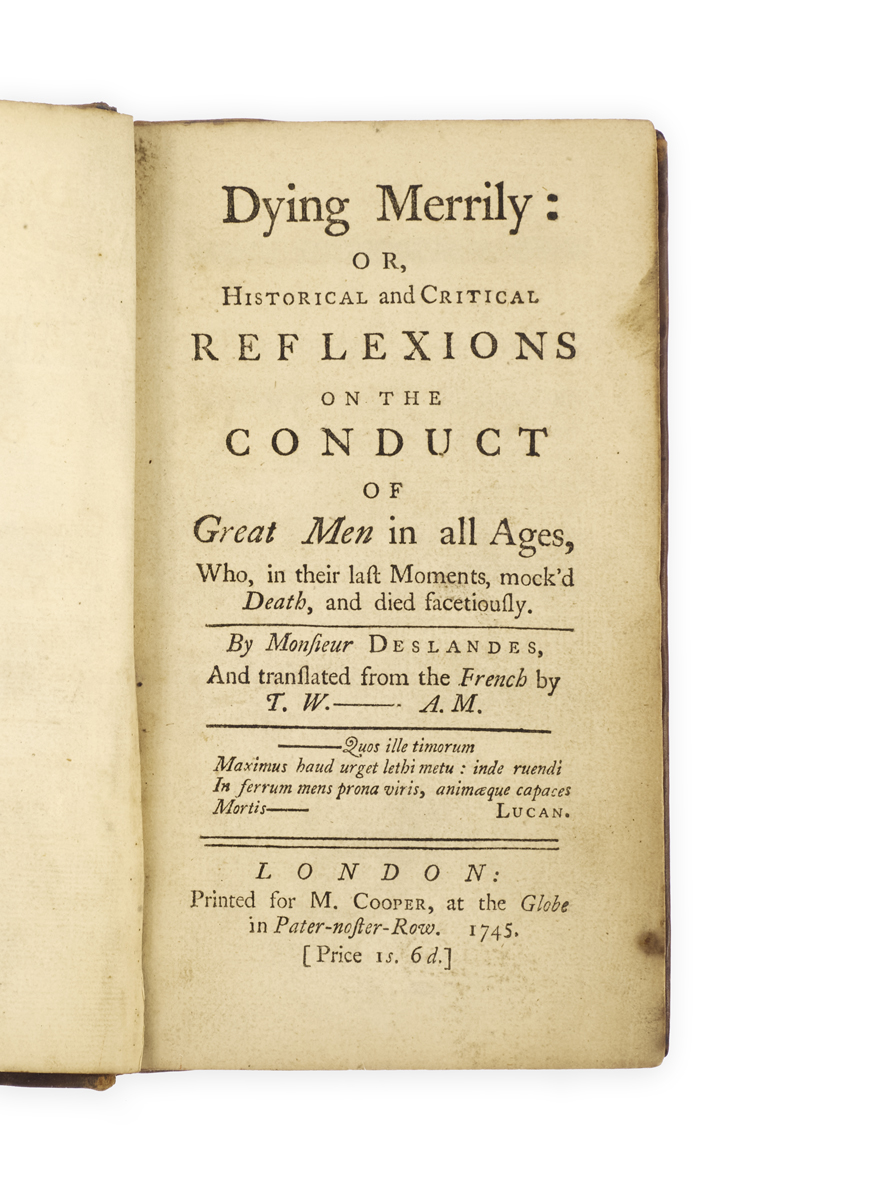[HILL, ‘Sir’ John, attributed author].
The Oeconomy of Human Life. Part the Second. Translated from an Indian Manuscript, found soon after that which contain’d the Original of the first Part; and written by the same Hand. In a second letter from an English Gentleman residing at China, to the Earl of * * *
London: Printed for M. Cooper ... 1751.
8vo., pp. viii, 136; a fine copy in contemporary tree calf, spine gilt, with the bookplate of John Pollexfen Bastard.
Added to your basket:
The Oeconomy of Human Life. Part the Second. Translated from an Indian Manuscript, found soon after that which contain’d the Original of the first Part; and written by the same Hand. In a second letter from an English Gentleman residing at China, to the Earl of * * *
First edition of this opportunistic work by the self-styled ‘Sir’ John Hill (so attributed in ESTC). It purports to be the sequel to Robert Dodsley’s highly successful The Oeconomy of Life (1750; sometimes attributed to P. D. Stanhope, Earl of Chesterfield), and is written in the same poetic prose mode of simple wisdom concretely imagined, a mode that clearly owes far more to the authorised translations of Old Testament poetry than to any oriental antecedent.

